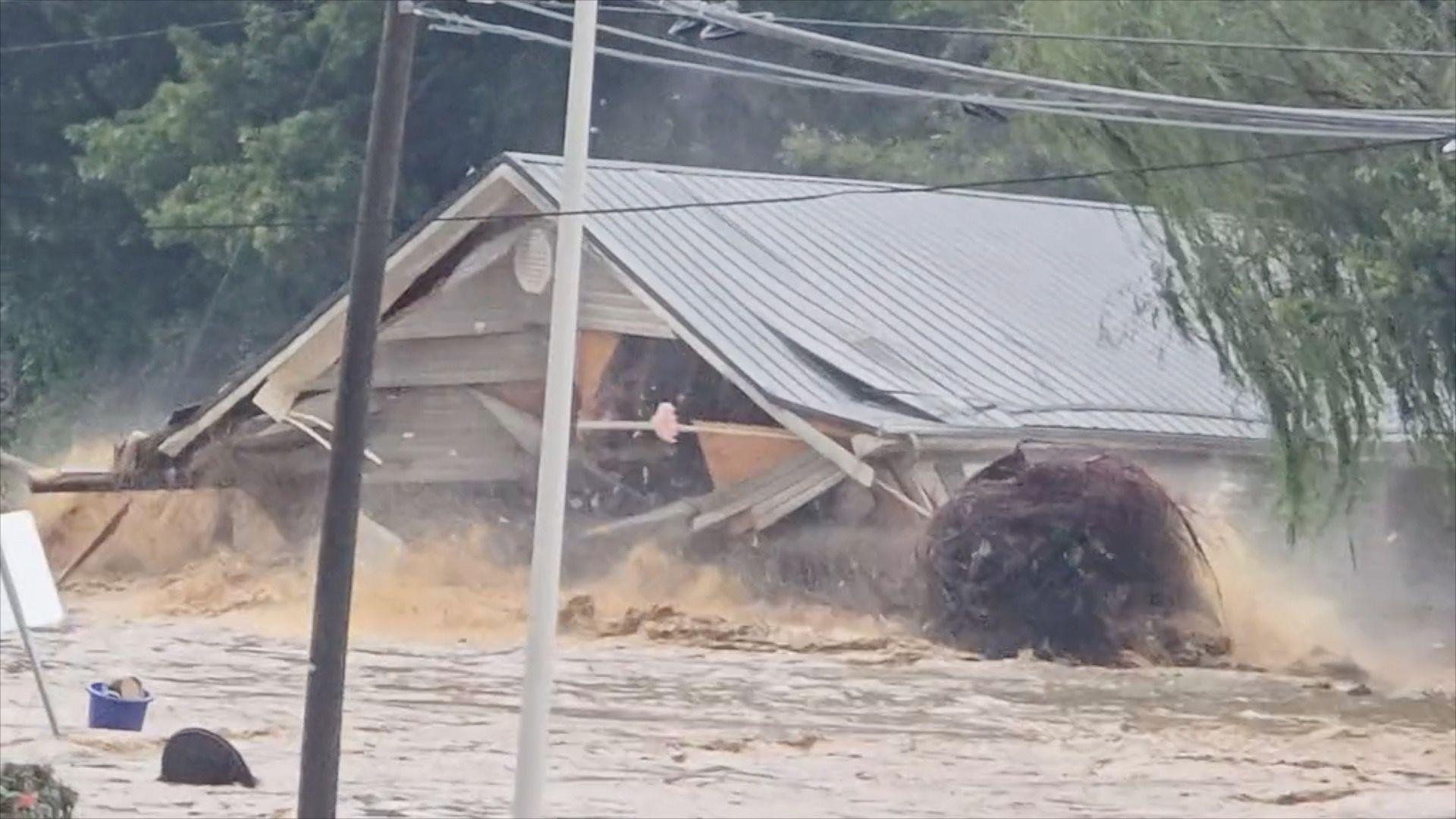Helene is deadliest mainland US hurricane since Katrina
Hurricane Helene: North Carolina building flows down river and smashes into debris
- Published
The death toll from Hurricane Helene has surpassed 200 as rescuers continue to search for survivors from the storm that tore across the US south-east.
More than half of the deaths were in North Carolina, where entire communities were uprooted and devastated by the deadliest mainland storm since Katrina in 2005, which killed more than 1,800 people.
Hundreds of people are still missing and 780,000 homes were without power nearly a week after Helene made landfall.
The rising death toll comes as President Joe Biden continues his two-day tour of the area visiting Florida and Georgia on Thursday.
Biden received an aerial tour of the damage in Tallahassee, Florida, on Thursday where the hurricane made landfall as a category four storm last week.
Speaking later in Ray City, Georgia, Biden told residents: “I see you, I hear you, I grieve with you, and I promise you we have your back.
“We’re going to stay until you’re restored.”
The president has approved federal disaster assistance for survivors in Florida, Georgia, North Carolina, South Carolina and Virginia.
Tens of thousands of people have no running water in North Carolina, which has seen some of the most severe impacts of the storm, particularly in the mountainous area of Asheville.
“I feel like I just survived the apocalypse,” Nicole Rojas, a Vilas, North Carolina, resident told the BBC.
An elderly couple, Jerry and Marcia Savage, died in bed when a tree fell on their home in South Carolina, their grandson told the Associated Press news agency. He said they were found hugging one another.
Hundreds of roads remain closed, hampering efforts to send aid to hard-hit communities.
Private citizens have been helping distribute aid in a variety of ways, including by mule and privately owned helicopters.
Mountain Mule Packer Ranch has deployed a team of mules to help carry thousands of supplies into remote communities.
The "sure-footed" pack animals are familiar with backcountry trails, and can travel on broken asphalt in ways that vehicles cannot, says mule-packer Michele Toberer.
"They are perfectly prepared for the conditions of the mountains," she says.
So far, the team of nine mules has delivered hundreds of pounds of insulin, baby formula, nappies, canned food, cleaning supplies, and animal feed, she tells BBC News, adding that the biggest challenge they've faced so far is from the deep mud left behind by the floods.
Hurricane Helene's devastating impact in 100 seconds
North Carolina prisons on Wednesday relocated 800 inmates due to lack of power and running water, according to the state's department of corrections. Over 2,000 prisoners were relocated from other prisons earlier this week.
Family members of prisoners told the Asheville Citizen-Times, external newspaper that they haven't been able to contact their loved ones for more than a week.
More than 6,700 Army and Air National Guard members from 16 states are assisting with the on-the-ground response, according to the National Guard.
The president deployed 1,000 active-duty soldiers to help with the aid efforts.
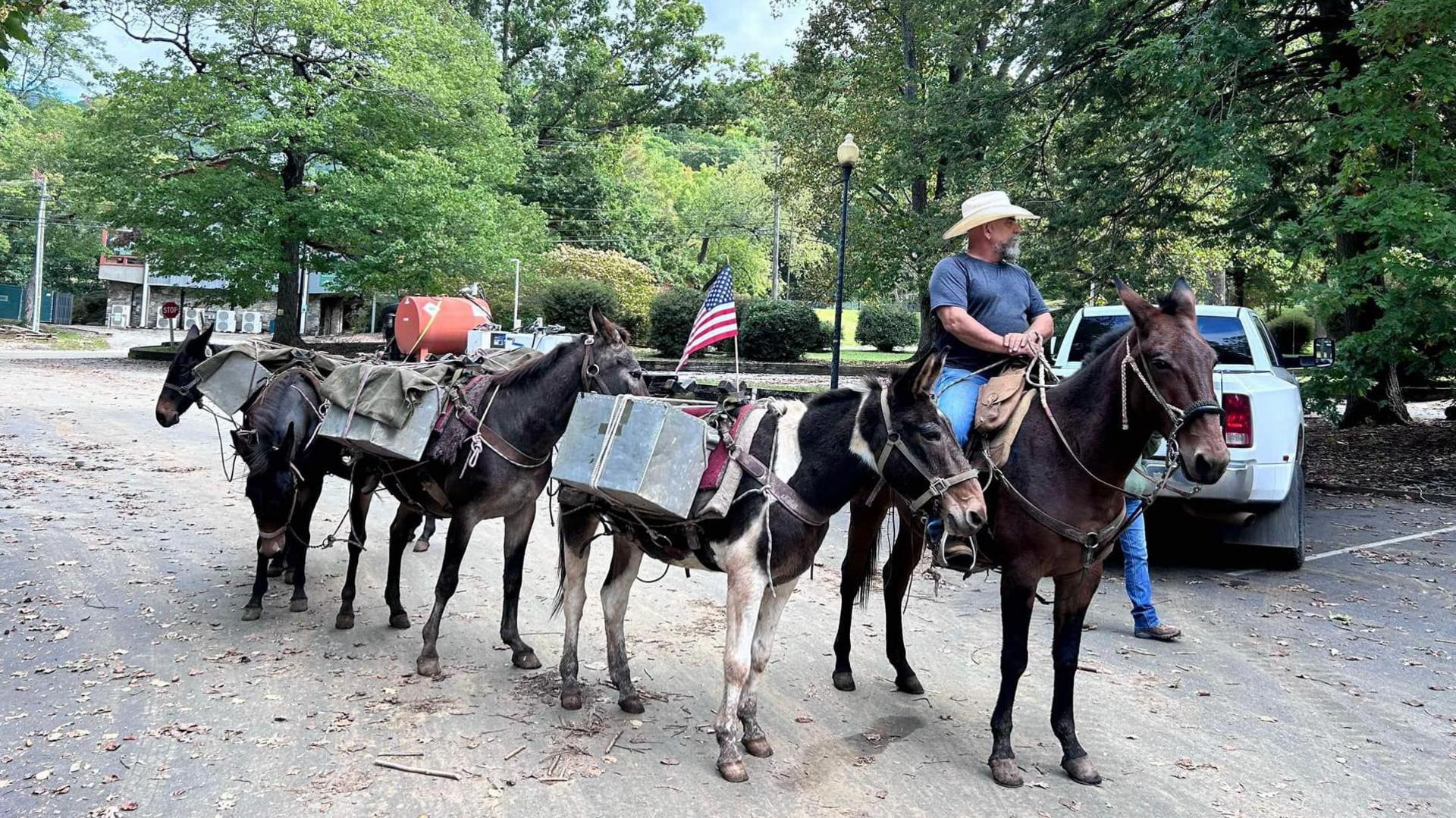
Former President Donald Trump toured damaged areas in Georgia earlier in the week.
More rainfall is expected in the coming days in parts of the Gulf Coast and Florida, which could complicate the recovery efforts.
US Homeland Security chief Alejandro Mayorkas warned earlier in the week that if another storm struck the US in the coming months, the Federal Emergency Management Agency would struggle to provide assistance.
The Biden administration has shipped more than 8.8 million meals, 7.4 million litres of water, 150 generators and 225,000 tarps to the region, Mr Mayorkas said.
The Atlantic hurricane season continues until the end of November, and two more storms are currently brewing.
Hurricane Kirk, a category four storm, is expected to create dangerous surf conditions in Florida and the Caribbean islands, but is not expected to make landfall in the US.
Tropical Storm Leslie currently poses no threat to the US.
Related topics
- Published3 October 2024
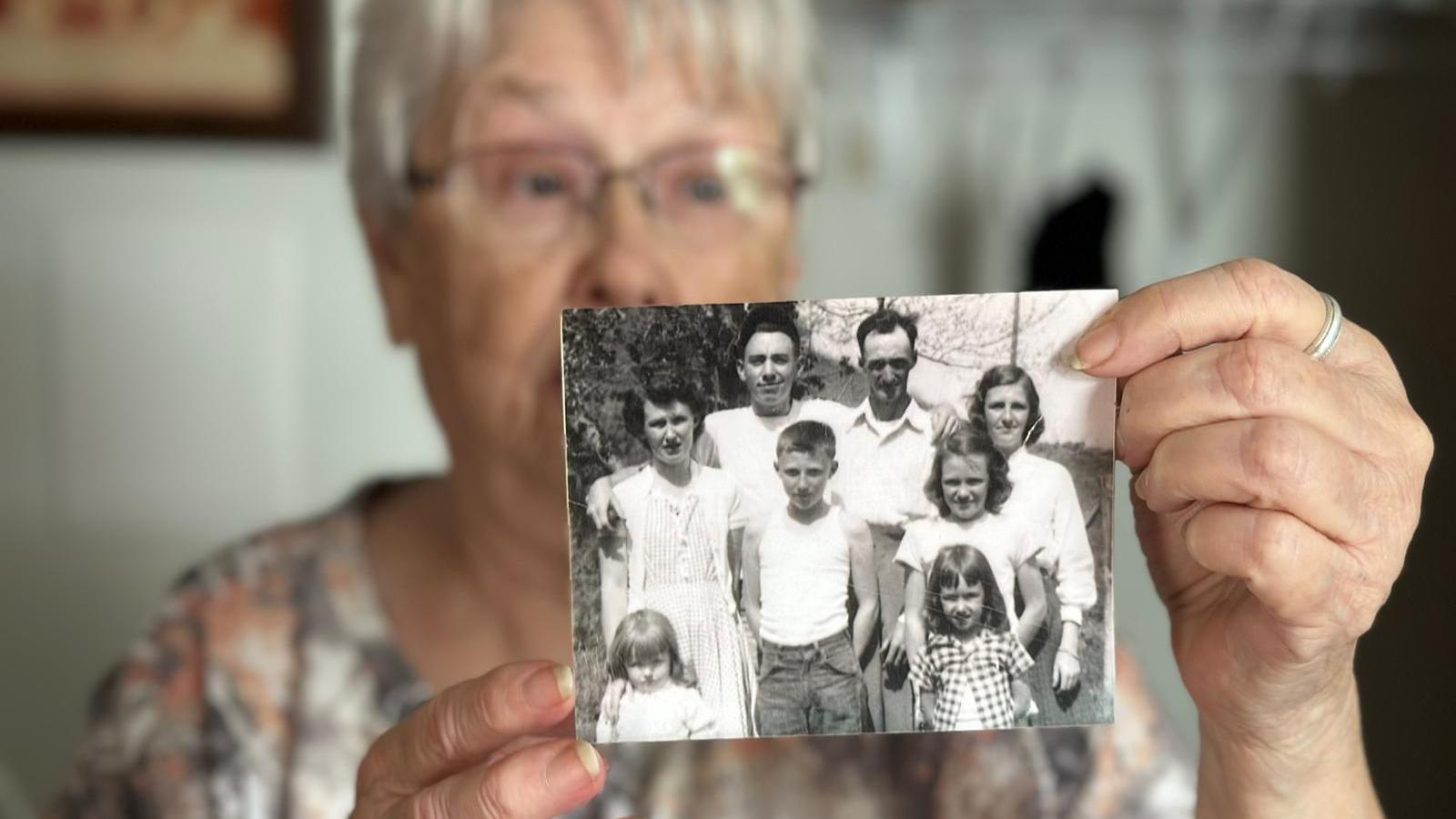
- Published2 October 2024
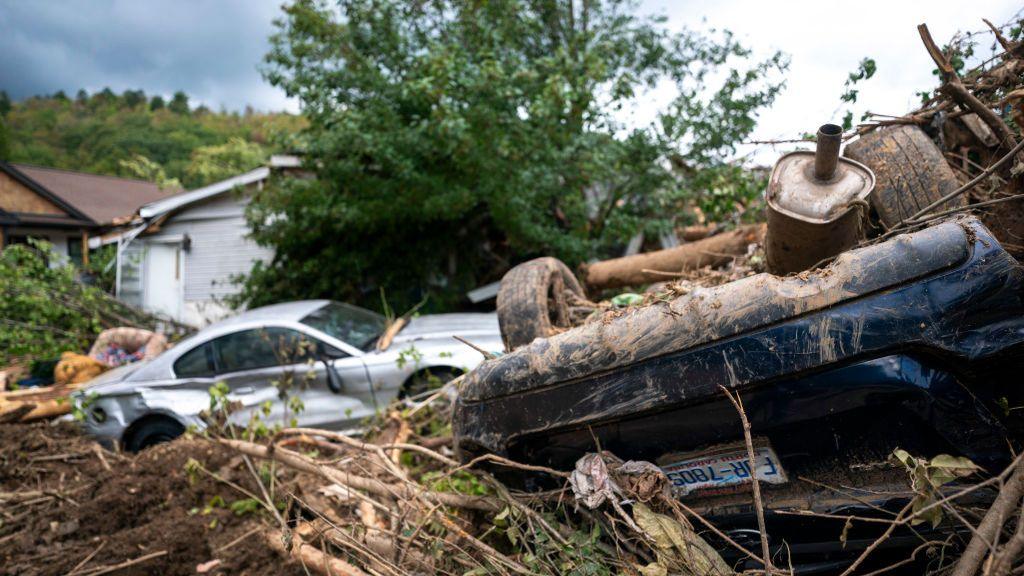
- Published2 October 2024
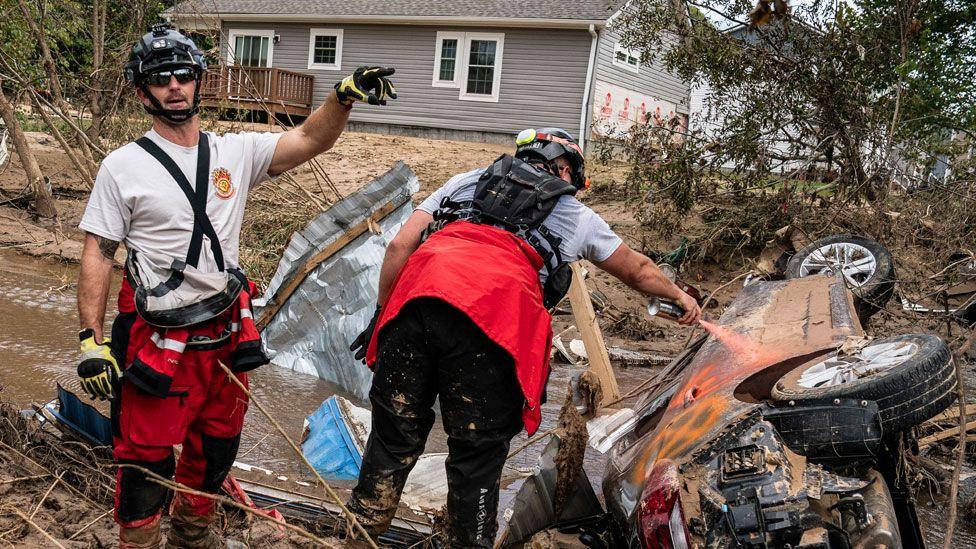
- Published3 October 2024
